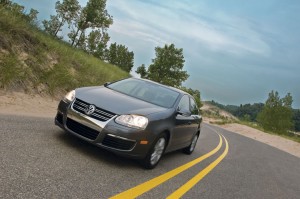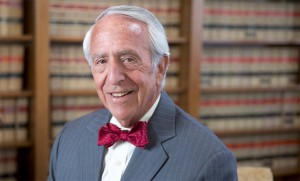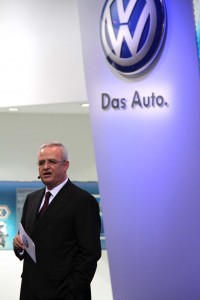The $15 billion settlement last month in the Volkswagen diesel cheating scandal has won the tentative approval of U.S. District Judge Charles Breyer — but despite the record price tag, it doesn’t end the automakers legal problems.
The deal includes $10 billion to buy back or repair about 475,000 VW vehicles equipped with diesel engines that were rigged to illegally pass emissions tests. The rest of the settlement will go to various programs meant to compensate for the excess pollution those vehicles produced.
“Volkswagen appreciates the constructive engagement of all the parties,” the maker said in a statement that followed Breyer’s ruling, “as the settlement approval process moves forward. The parties believe that the proposed settlement program will provide a fair, reasonable and adequate resolution for affected Volkswagen and Audi customers.”
The ruling brought an equally positive response from those on the other side of the courtroom.
“We are pleased the Court has granted preliminary approval, which brings us a step closer toward achieving the settlements’ goals: fairly compensating consumers, undoing the cars’ environmental damage through remediation, and fixing or getting these polluting cars off the roa,” said a statement from Elizabeth Cabraser, lead counsel for the consumer plaintiffs in the lawsuit against VW.

The settlement covers only 2.0-liter diesel models. A separate deal for VW's 3.0-liter diesel is coming.
The deal only covers VW’s 2.0-liter diesel engine, however. The automaker is still trying to negotiate a settlement for charges it rigged a 3.0-liter turbodiesel, as well. Meanwhile, the automaker faces a variety of other legal issues that could add billions to the final cost of the scandal – including lawsuits filed this month by three individual states.
(Despite high cost of diesel scandal, VW delivers profitable surprise. Click Here for more.)
The agreement that faced Judge Breyer – the brother of U.S. Supreme Court Justice Stephen Breyer – is “the largest clean air mitigation step in the history of the Clean Air Act,” Deputy U.S. Attorney General Sally G. Yates said during a news conference in Washington, D.C. on June 28th.
The deal was announced a month ago by the U.S. Justice Department, the Environmental Protection Agency, the Federal Trade Commission and the California Resources Board. It is expected to be the largest — but not the last — settlement stemming from the emissions scandal.
VW has begun fixing the 2.0-liter diesels sold overseas and continues searching for an acceptable fix for models sold in the States. A plan to repair the 3.0-liter models was rejected earlier this month by the California Air Resources Board, but VW expects to have an acceptable fix in place this year. The results could impact the ultimate price tag on a separate settlement covering the larger engine.
In its statement, VW noted consumers will have two options: accept the buyback of 2.0-liter diesel models or wait for a fix. But coming up with a repair for all of the 2.0-liter diesels may prove difficult, especially for older versions, cautioned to various industry sources who expect that the embattled automaker will have to buy back most or all of those vehicles still on the road.
Complicating matters for the automaker: it cannot sell any of its diesel models until they come into compliance with U.S. emissions standards. Before the cheating was revealed, turbodiesels accounted for about 25% of VW’s sales in the U.S.
About $10 billion has been set aside to fund the buyback plan. Another $2 billion will go to help promote the sale of zero-emission vehicles. And the deal sets aside $2.7 billion to fund an emissions remediation program. All 50 states, as well as U.S. territories and Indian tribal governments, will share in that portion of the fund which will be used to replaced older trucks, buses and stationary diesel power sources with newer, cleaner technology.
Along with the settlement for the 3.0-liter diesel engine scam, VW still has a number of other legal challenges to resolve. It faces new lawsuits filed by New York and two other states, as well as claims filed by shareholders who feel the revelations have adversely impacted the value of their investments. Volkswagen AG shares have fallen sharply since last year’s revelations.
(For more on the new 3-state lawsuits, Click Here.)
The automaker has also been telling dealers around the country that it expects to soon announce a compensation package for them to cover business losses resulting from the scandal.
There are still other potential legal problems looming for VW, however. During a joint government news conference detailing the settlement, Deputy U.S. Attorney General Yates said that, “I can assure you our criminal investigation is active and ongoing.”
The Justice Department is continuing to cooperate with German investigators who have their own ongoing probes. That includes one targeting former VW CEO Martin Winterkorn. He was ousted shortly after the emissions cheating was revealed last September.
(GM has its own, mounting legal problems. Click Here for the report.)


